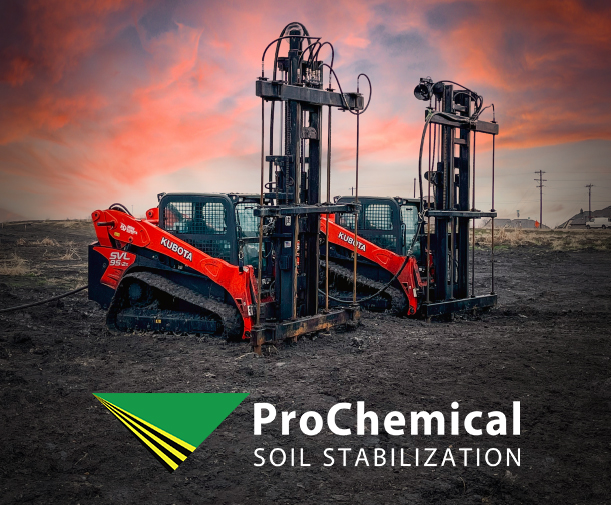Soil Stabilization. When planning to build your next home or residential commercial project, one crucial question you need to answer is: what causes more damage to homes, businesses, and government agencies every year than floods, earthquakes, hurricanes, and tornadoes combined? Believe it or not, it’s the swelling and shrinking of soil beneath their foundations.
A home or building is only as stable as the soil beneath it. Before you drive the first nail or lay the first brick, it’s crucial to ensure the foundation is secure. That’s where Prochemical Soil Stabilization comes in.
Leading the Way in Soil Stabilization
For over three decades, Prochemical Soil Stabilization has been at the forefront of soil stabilization in Texas. As a family-owned business, we pioneered the revolutionary ProChem Ionic Liquid Stabilizer, validated by an extensive University of Texas study.
Imagine a construction process that’s not just faster but also better and more economical. With our state-of-the-art method, we can treat up to 6,000 square feet per day per tractor. But it’s not just about speed. Our proprietary solution doesn’t just stabilize soil; it transforms its very structure, offering a permanent fix.
Cost-Effective and Efficient Solutions
When it comes to costs, we can slash your stabilization expenses by up to 40% compared to traditional methods like moisture conditioning or select fill. The consequences of ignoring soil stabilization can be severe. Unstable clay can lead to cracks in walls and floors or even structural slab heave damage, potentially resulting in tens of thousands of dollars in repairs.
Prochemical ensures that what lies beneath the surface always offers the stability your project needs. Backed by a comprehensive two-year study conducted by the University of Texas at Arlington, our solution is proven to provide lasting results.
How It Works
Using cutting-edge equipment, we inject our ProChem Stabilizer directly into the soil based on geotechnical reports for the region. When applied, it quickly interacts with the clay, altering its physical composition on an irreversible molecular level. The clay’s moisture content is altered dramatically because we’ve changed its electrochemical nature, inhibiting its ability to bond with water permanently.
Our services are also available post-construction, offering a hand injection technique around the perimeter to stabilize the soil under any existing structure. Our process is a permanent solution. With over three decades of experience, Prochemical Soil Stabilization is now stabilizing over 1,000 sites every year across the nation.
Build on Solid Ground
Prochemical Soil Stabilization offers the stability your project needs to ensure a secure foundation. Give us a shout or click the chat widget on this page to learn more about what we can do for you and how we can make your next construction project more stable, economical, and efficient.

